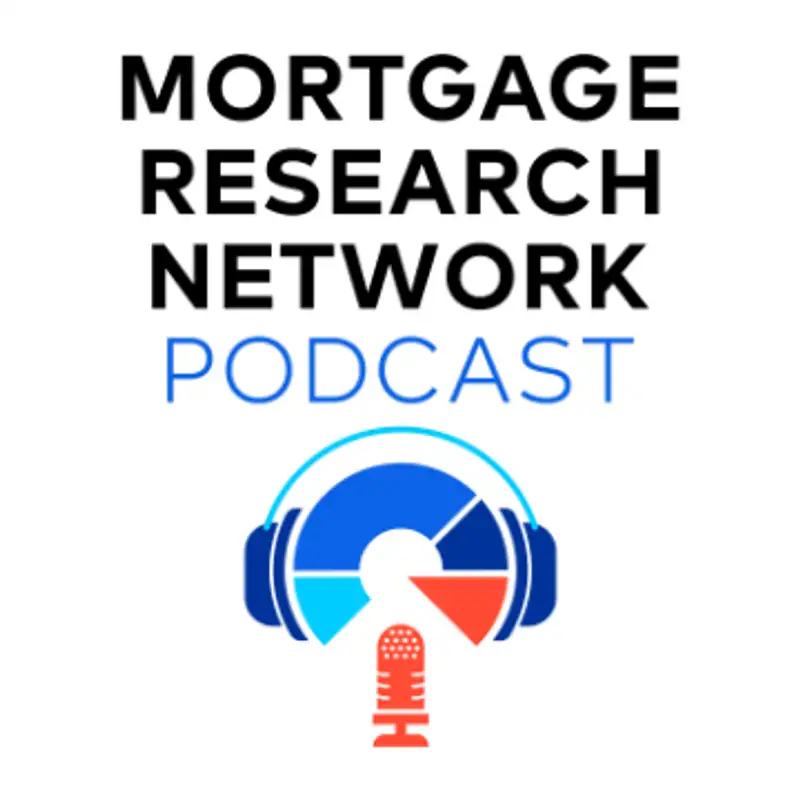Crypto on the Books: Counting Bitcoin for Your Mortgage
Welcome to the Mortgage Research Network Podcast. Just a note that this podcast is AI-generated, but the article on which it's based was produced by people. This podcast's content is also reviewed for accuracy. And your hosts, Tim and Craig, are real people. Without further ado, let's get into today's topic.
I'm your host, Tim Lucas, editor of MortgageResearch.com and a former mortgage professional, and with me is Craig Berry, a mortgage originator with 25 years experience.
Hi everyone. Thanks for joining us.
Today we're talking about cryptocurrency and some upcoming changes that could be coming to mortgage rules.
This sounds interesting
It really is. On June 25, 2025, Federal Housing Finance Agency Director Bill pulltay directed Fannie Mae and Freddie Mac to come up with a proposal to consider cryptocurrency as legitimate assets for a mortgage, potentially helping crypto holders qualify for a home loan more easily.
That could be a big help. Lenders can't normally count crypto assets unless they're converted to U.S. dollars first.
Right. Imagine having $50,000 in Bitcoin but being told it doesn't help your mortgage approval. Well, that might be about to change.
That's fascinating timing actually. I've heard a lot recently about those with substantial crypto holdings but getting denied for mortgages left and right. So what exactly would this mean for someone trying to buy a house with crypto assets?
Let me break it down with an example. Let's say a lender requires $10,000 in reserve after the down payment and closing costs. You have $5,000 in cash but $50,000 in Bitcoin. Only that $5,000 counts. You don't qualify. Under these new rules, they might actually consider that Bitcoin as part of your financial safety net.
But what about using crypto for the actual down payment? That's what most crypto holders are probably hoping for.
That's still going to be a no-go. You'll need to convert crypto to USD and put it in a traditional bank account for down payments. Though there are some specialized crypto mortgage lenders, they're pretty niche and often come with their own complications.
Well that's interesting. So this is really more about proving you have backup funds than actually using crypto to buy the house?
Exactly. And, Fannie Mae and Freddie Mac usually don't require reserves except for weaker loan files or investment properties. So this may not push many people over the line as far as qualifying. But it would help some for sure.
Did the announcement come with any other rules besides not being able to use crypto directly as a down payment?
Well here's where it gets interesting: they're putting some pretty specific guardrails in place. Not every cryptocurrency will qualify. If I were to guess, Bitcoin could be accepted since it's the predominant type of crypto. But it's anyone's guess as to the others like Ethereum. Plus, they're only going to consider crypto stored on U.S.-regulated centralized exchanges.
That seems pretty restrictive for crypto holders who keep their assets in private wallets or international exchanges.
True. Plus, they're likely to only let borrowers count a certain percentage of their crypto assets as reserves. It's similar to how FHA lending only lets you count 60% of retirement funds. They're accounting for volatility and potential tax implications.
Speaking of volatility, how are they planning to handle those wild price swings we see in crypto markets?
That's actually one of the biggest challenges they'll need to figure out. The directive doesn't specify exactly how they'll handle volatility, but that Fannie Mae and Freddie Mac need to come up with a proposal.
So what's the timeline looking like for all this?
Well, it's not happening overnight. First, both Fannie and Freddie need to prepare detailed proposals. Then those proposals need to go through their respective Boards of Directors, get FHFA approval, and then they'll need to update all their automated underwriting systems. We're probably looking at several months minimum.
That's quite a process, though I suppose when you're dealing with something that affects more than half of all new U.S. mortgages, you want to be thorough.
Oh, a hundred percent. And what's particularly fascinating is that this is coming from federal regulators. Ten years ago, the idea of Fannie Mae and Freddie Mac even considering cryptocurrency as a valid asset would have seemed completely far-fetched.
So what would you tell someone who's sitting on significant crypto assets and hoping to buy a house in the near future?
I'd say keep watching this development closely, but don't put your home-buying plans on hold waiting for it. These changes will take time to implement, and we still don't know exactly what the final rules will look like. If you need to buy a house in the next few months, you'll probably still need to follow the current rules about converting crypto to cash first.
That's good practical advice. It's exciting to see these changes coming, but we shouldn't get ahead of ourselves.
Exactly. This is definitely a "wait and see" situation. It's a significant first step toward mainstream acceptance of crypto assets, but how it actually plays out in practice - well, that's going to be the really interesting part to watch.
That's about all the time we have for this topic, but we go into even more detail on the site. To learn more, go to Mortgage research.com and type crypto in the search bar at the top of the homepage. We'll see you next time on the Mortgage Research Network Podcast.
